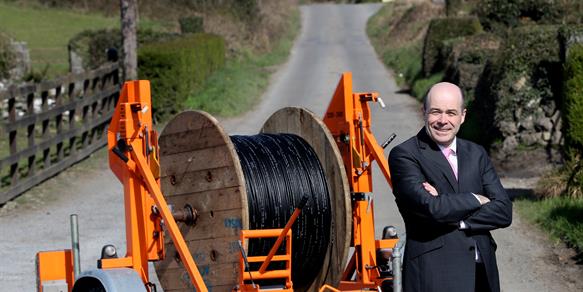Support for microgeneration in ROI: why no feed in tariff (FiT) now? Minister for Climate Action Denis Naughten explains.
The Republic of Ireland is currently developing a new Renewable Electricity Support Scheme (RESS) which will be designed to assist Ireland in meeting its renewable energy contribution to EU-wide targets out to 2030.
The design of the new scheme has included an extensive independent economic appraisal which compared the cost of supporting a range of commercial renewable technologies, including solar PV, anaerobic digestion, wind energy at various scales including small and microgeneration, to ensure that the new scheme delivers value for money for energy users whilst also delivering on the energy pillars of sustainability and security of supply. The assessment also included analysis of the optimum financial support mechanisms for renewable technologies, in line with the 2014 EU State Aid guidelines.
Microgeneration, which typically involves an element of self-consumption and the selling of excess electricity to the grid, was also appraised by the Department, as part of the RESS economic assessment. This analysis identified a number of economic challenges that may need to be addressed before a support scheme for microgeneration can be developed.
These include; the higher costs associated with microgeneration compared to larger and medium scale renewable generators, the need to reform network charges; the need to assess the distributional impact of such a policy decision on the PSO (cost burden sharing); and development of a fair tariff for exported electricity taking the benefits of self-consumption into account.
This approach is in line with experience from other EU member states that have already implemented support schemes for microgeneration and are now having to reform them. Just last week, the Times (Ireland) reported that the UK Government has paid out almost £60 million to settle claims from companies that lost out, after it was forced to halve the level of subsidies (FiTs) for rooftop solar PV, due to an overly generous FiT and the subsequent high take-up rates.
It would be irresponsible if we didn’t learn from experiences of other countries and implement best practice in Ireland based on evidence that supports our policy objectives which is also cognisant of the direction of EU policy.
There are also technical and infrastructural challenges that will need to be addressed before we can bring microgeneration at significant scale onto a system designed for large generators.
Near-term opportunities
Notwithstanding these challenges, I am committed to further exploring opportunities to support microgeneration in Ireland. In October 2017, in conjunction with the Sustainable Energy Authority of Ireland (SEAI), I hosted a stakeholder workshop on microgeneration.
Following on from this workshop which was attended by over 100 industry stakeholders and following further consultation with the microgeneration sector in Ireland, in January 2018 Government announced its intention to introduce a grant aided pilot scheme for rooftop solar PV installations, targeting domestic users and self-consumption. Key characteristics of the new scheme will be the promotion of technological innovations and the linking of energy efficiency measures with microgeneration supports.
This proposed pilot scheme will commence this summer and will target solar PV and self-consumption amongst domestic customers.
The data gathered during this scheme will inform future phases of support for microgeneration in Ireland, as we align with the ambition of the recast Renewable Energy Directive which recognises the rights, entitlements and obligations of renewable self-consumers and deliver on ambitions and commitments made in the Energy White Paper and the Programme for Government.
This will be the first phase in a multi-phased implementation of supports for microgeneration in Ireland, as we move toward the new Directive and enable the renewable self-consumer.
Future supports
The recast Renewables Directive recognises the rights, entitlements and obligations of both renewable energy communities and renewable self-consumers; and the Directive will compel Member States to implement measures to remunerate these microgenerators who feed self-generated electricity into the grid.
Ireland strongly supports this ambition, but it is important that it is implemented in an efficient and effective way. The RED2 ambitions align broadly with policies under development in Ireland, but the challenges previously identified; financial, technical and infrastructural, cannot be ignored and will need to be addressed and overcome as part of the development of this Directive.
To support this ambition, the SEAI is currently conducting a behavioural and attitudes study into the likely demand for and impact of microgeneration among the public in Ireland which will inform future phases on this work.

